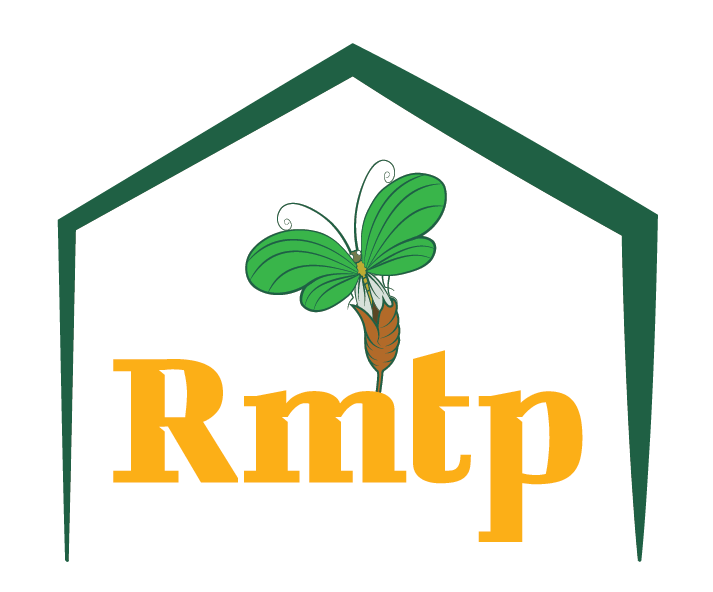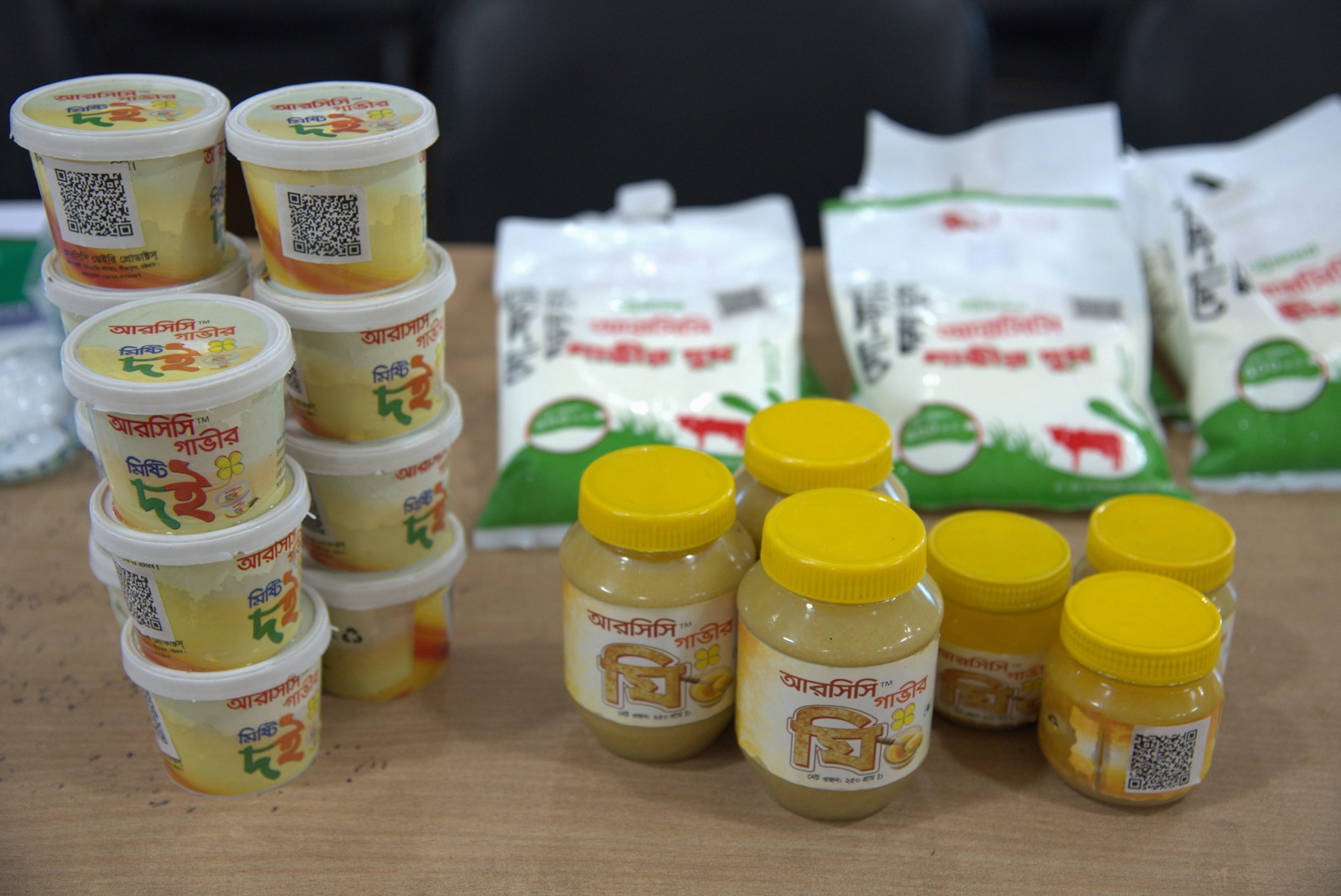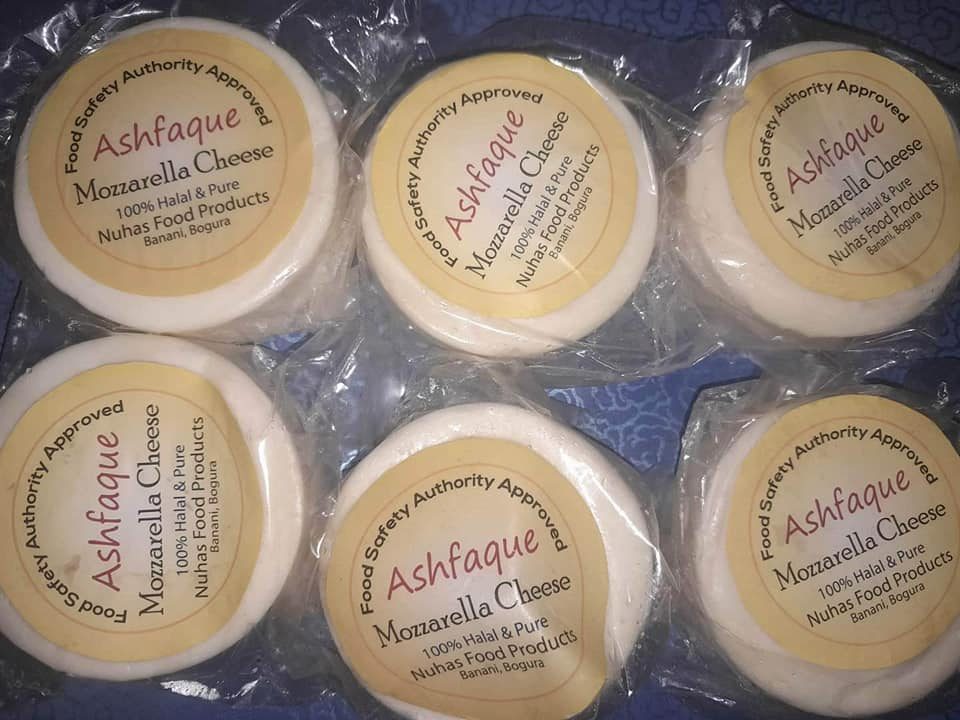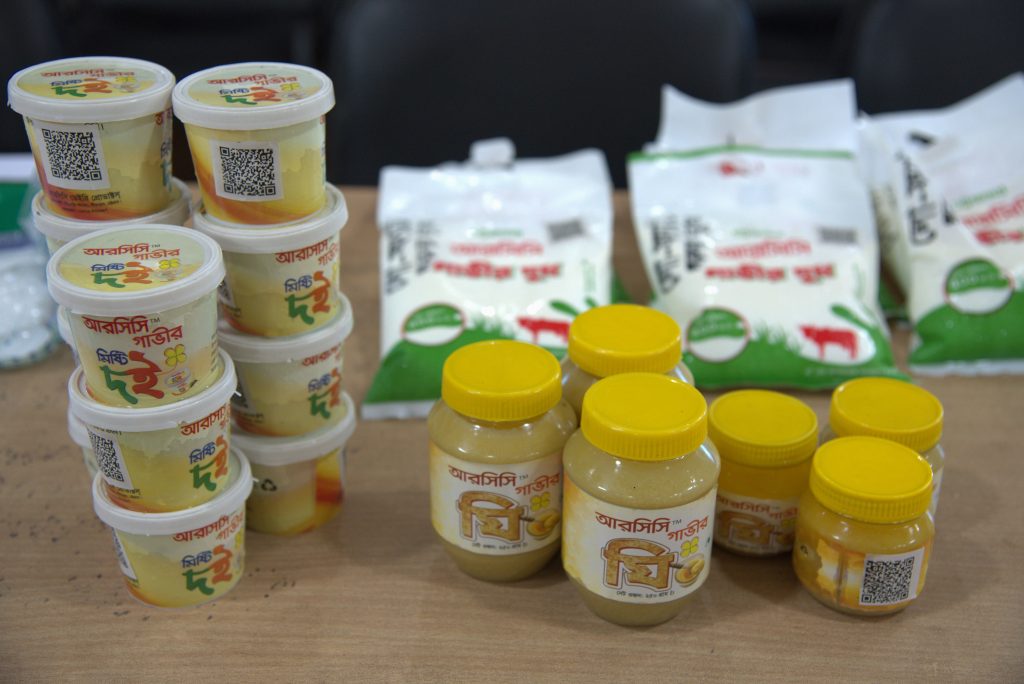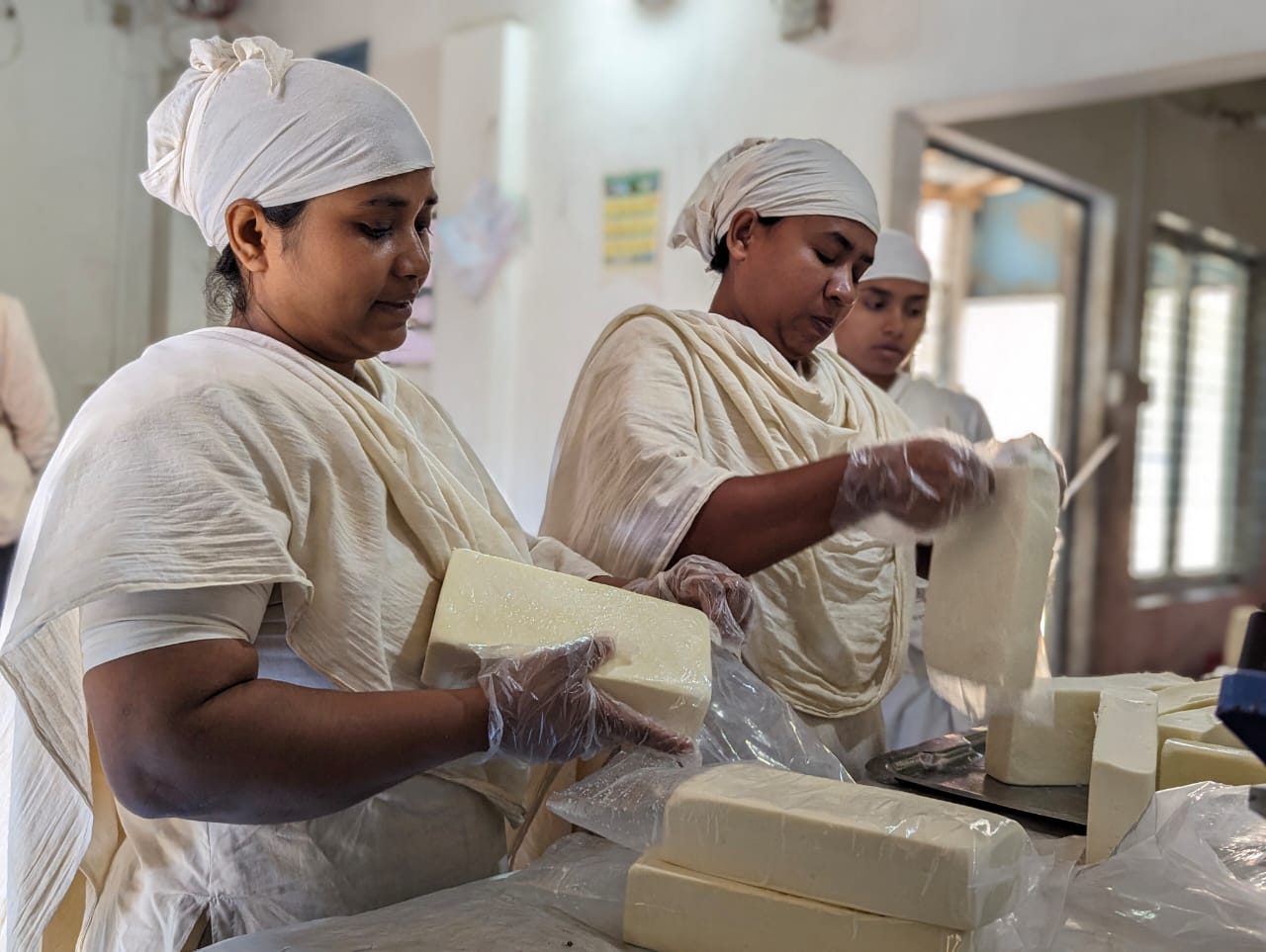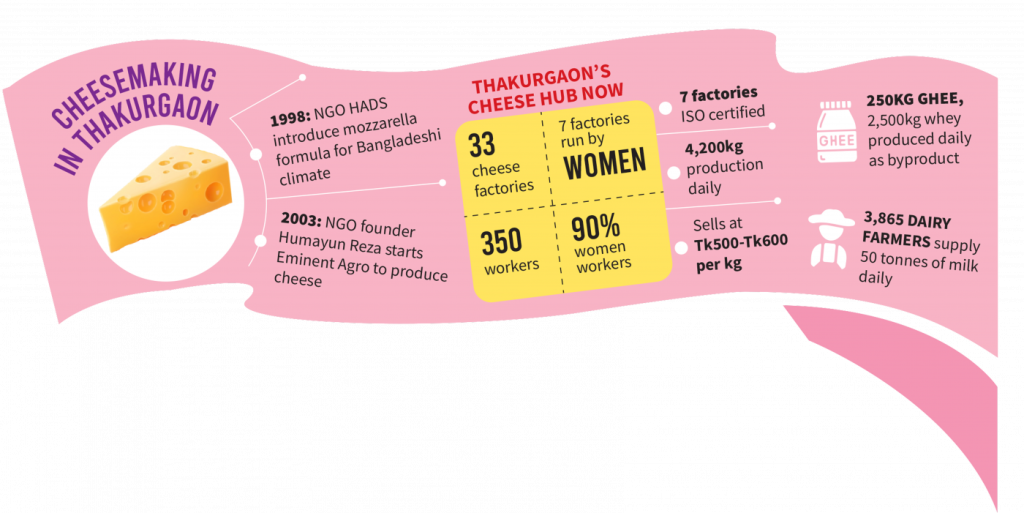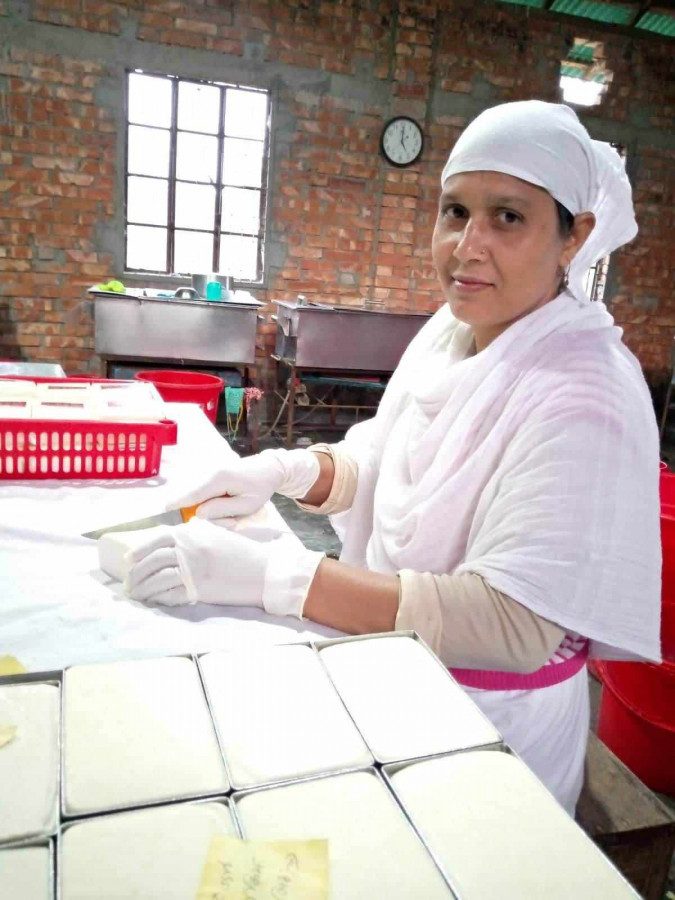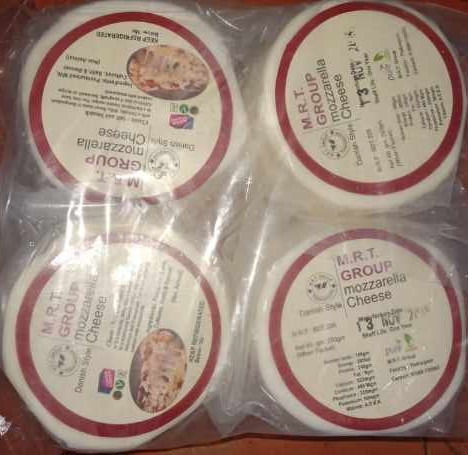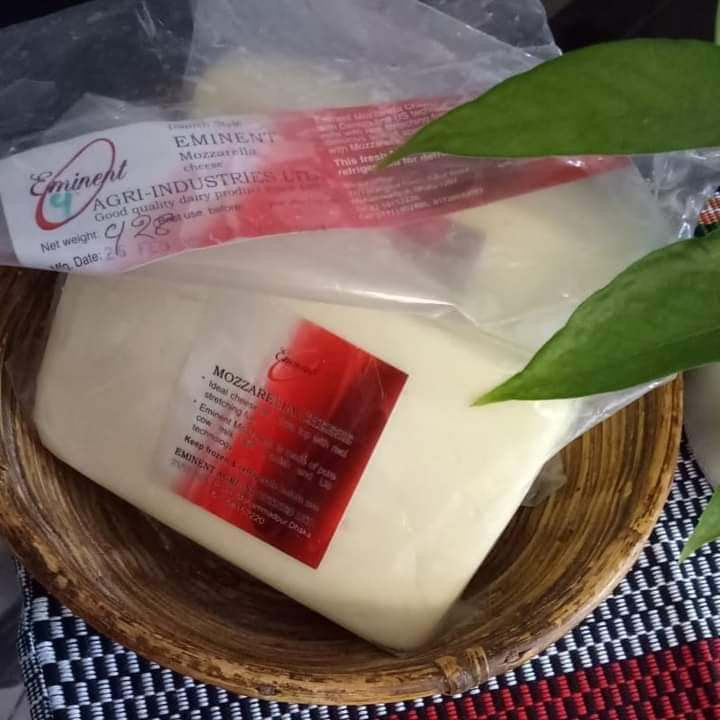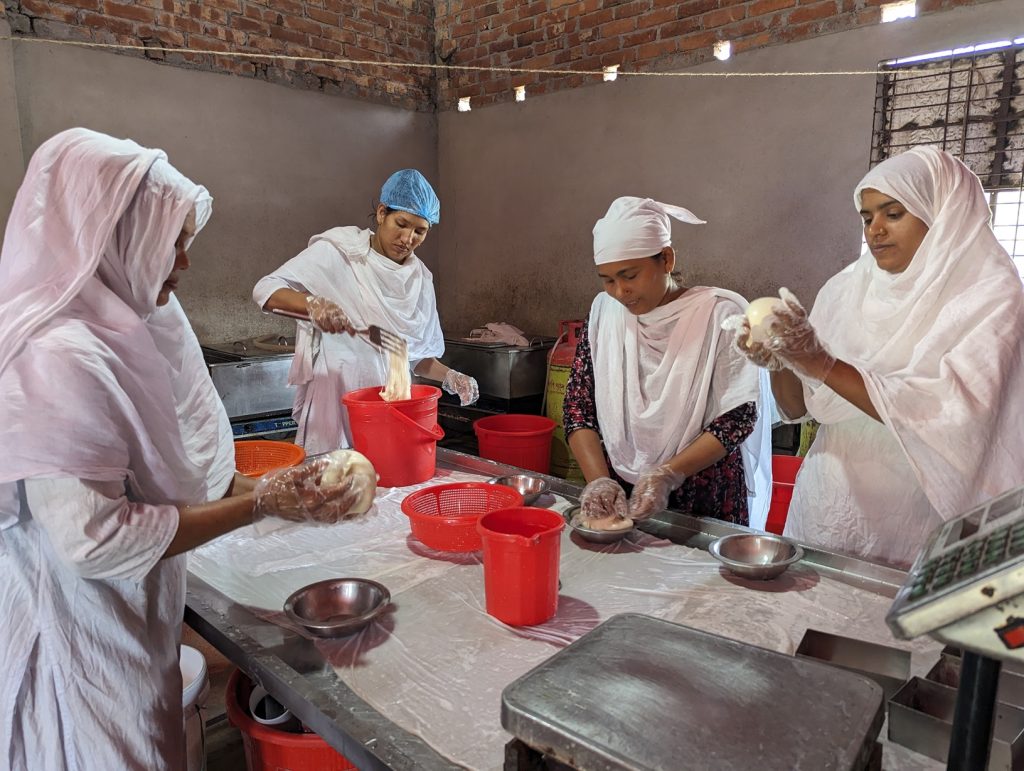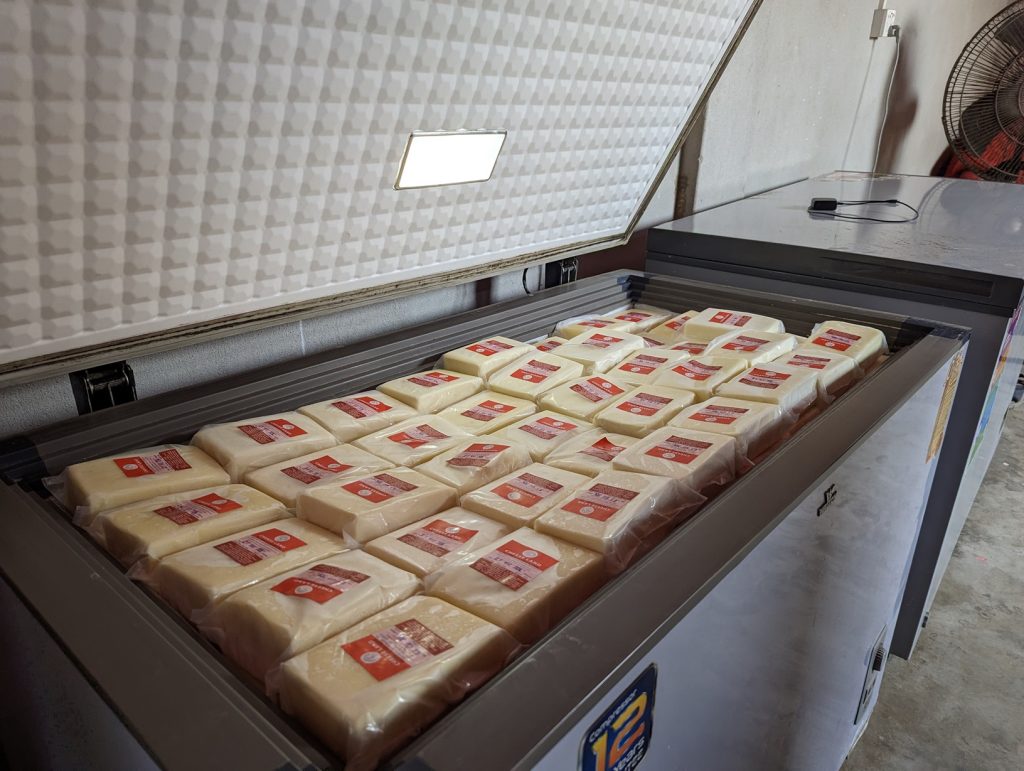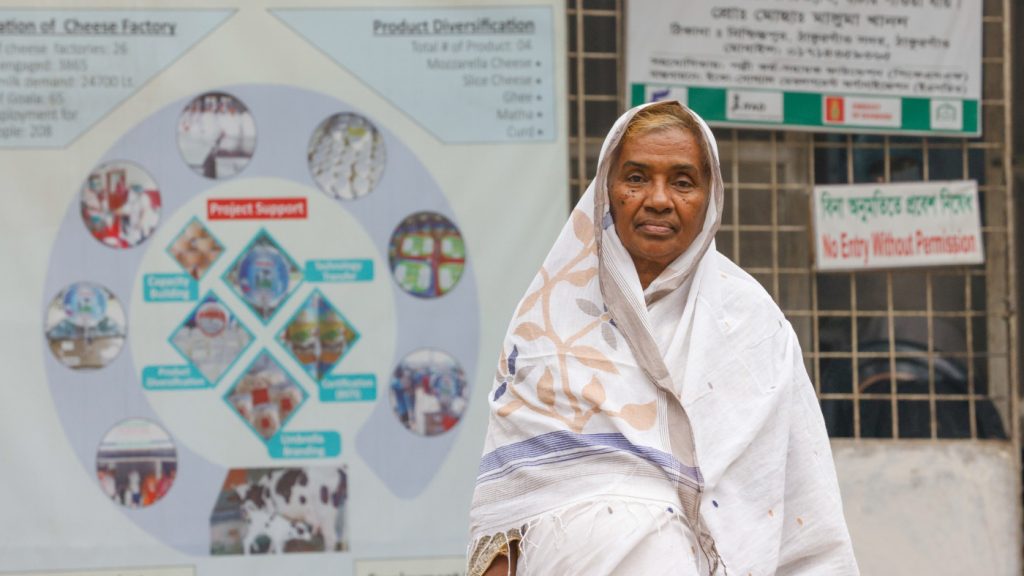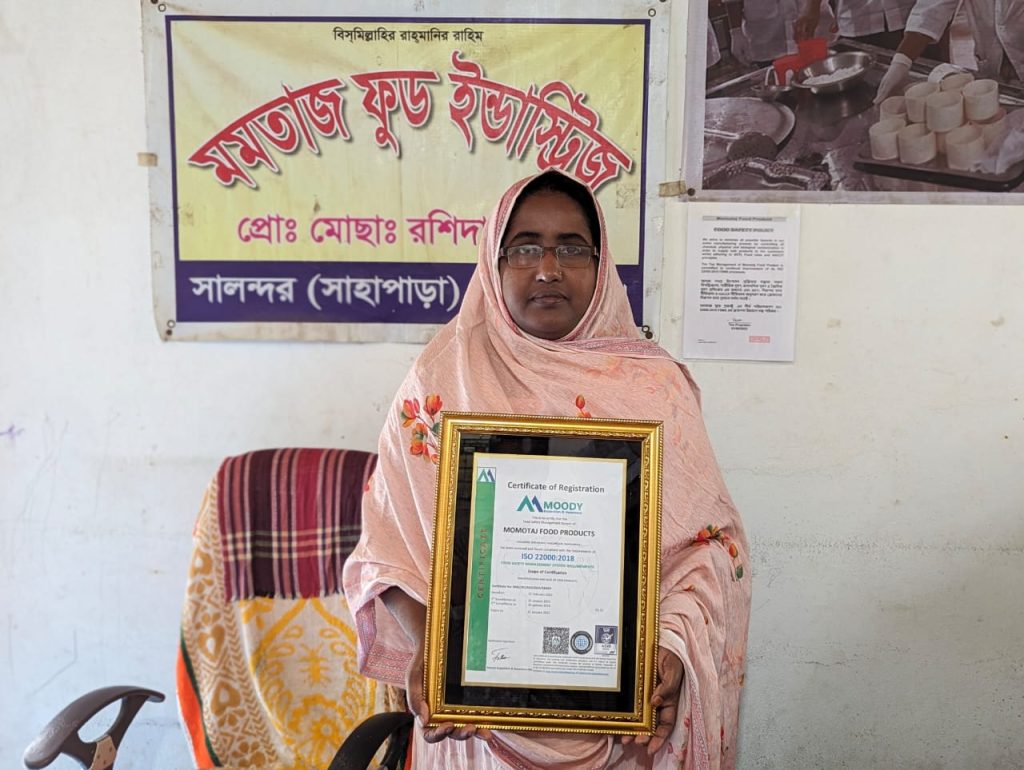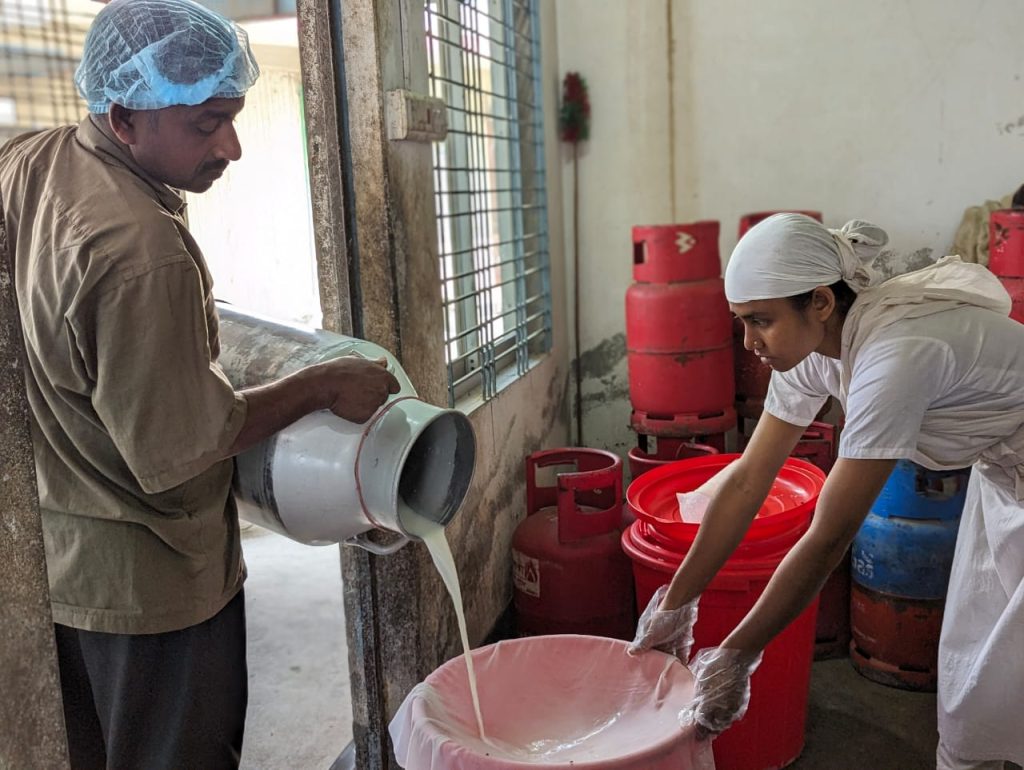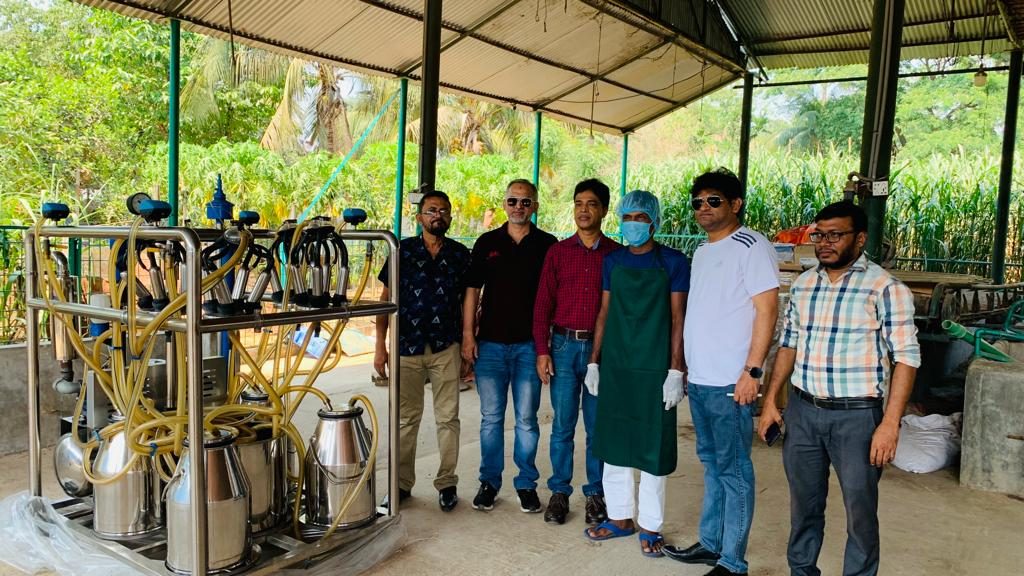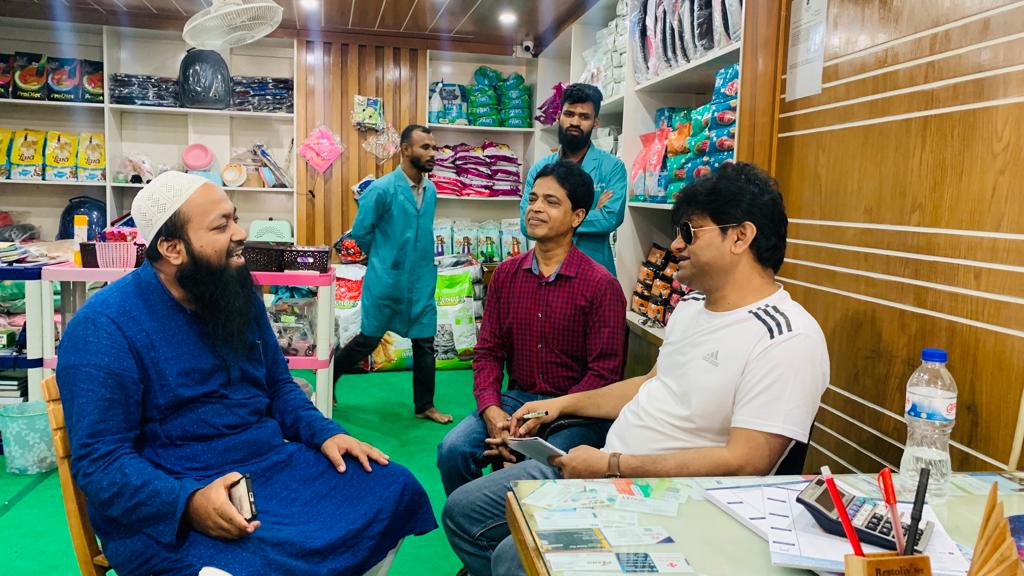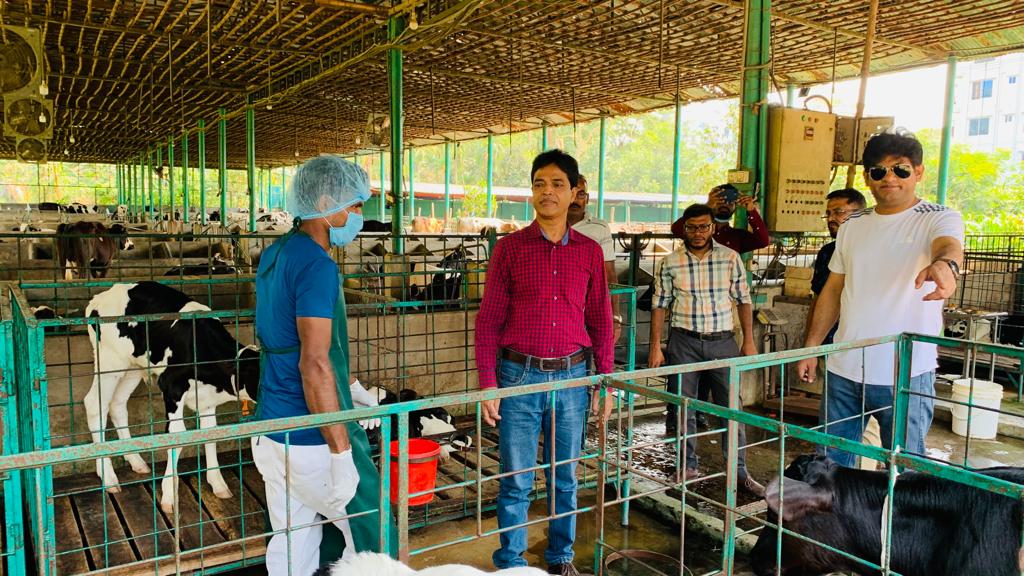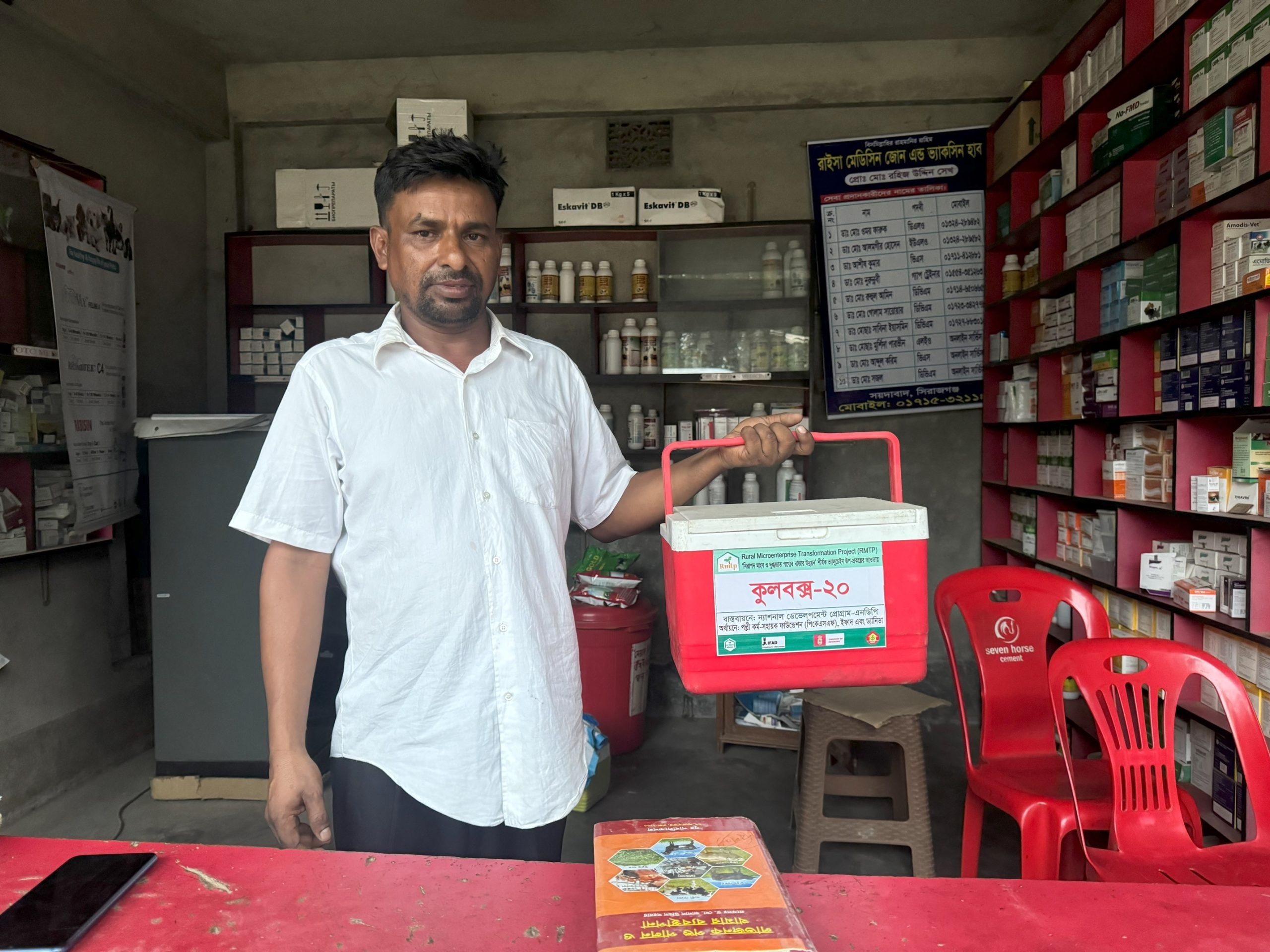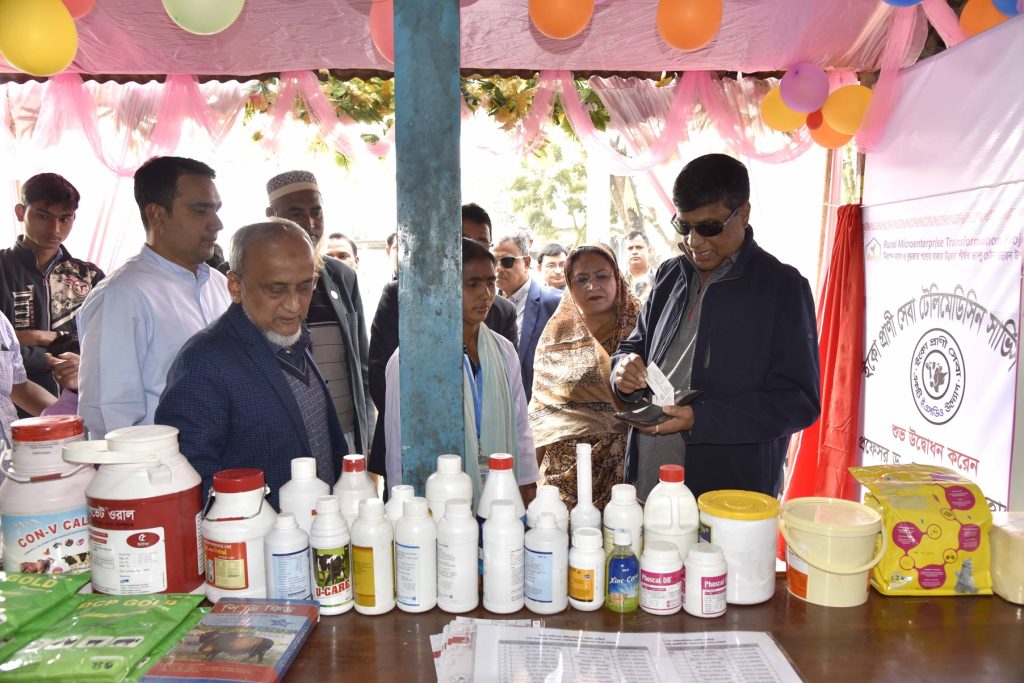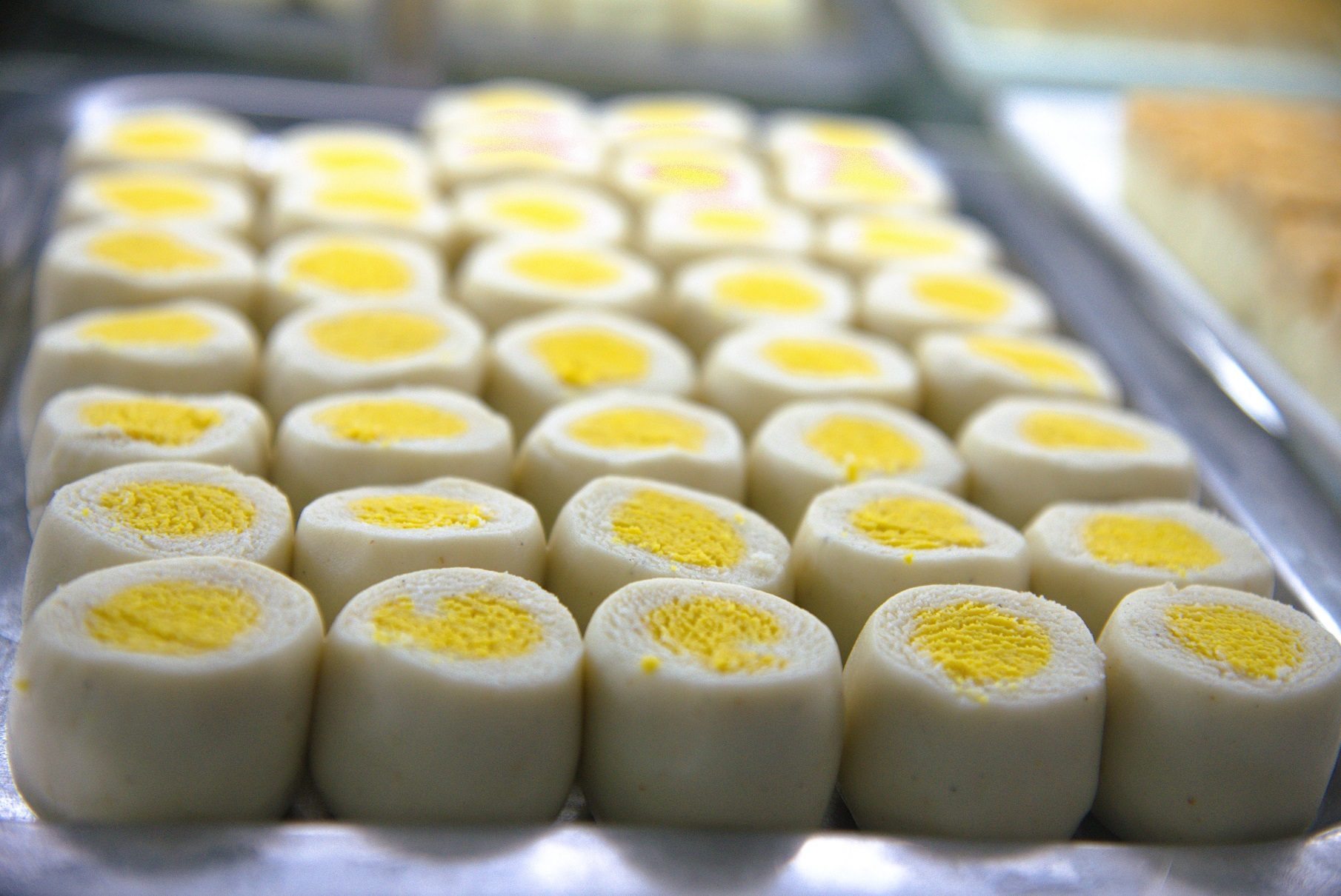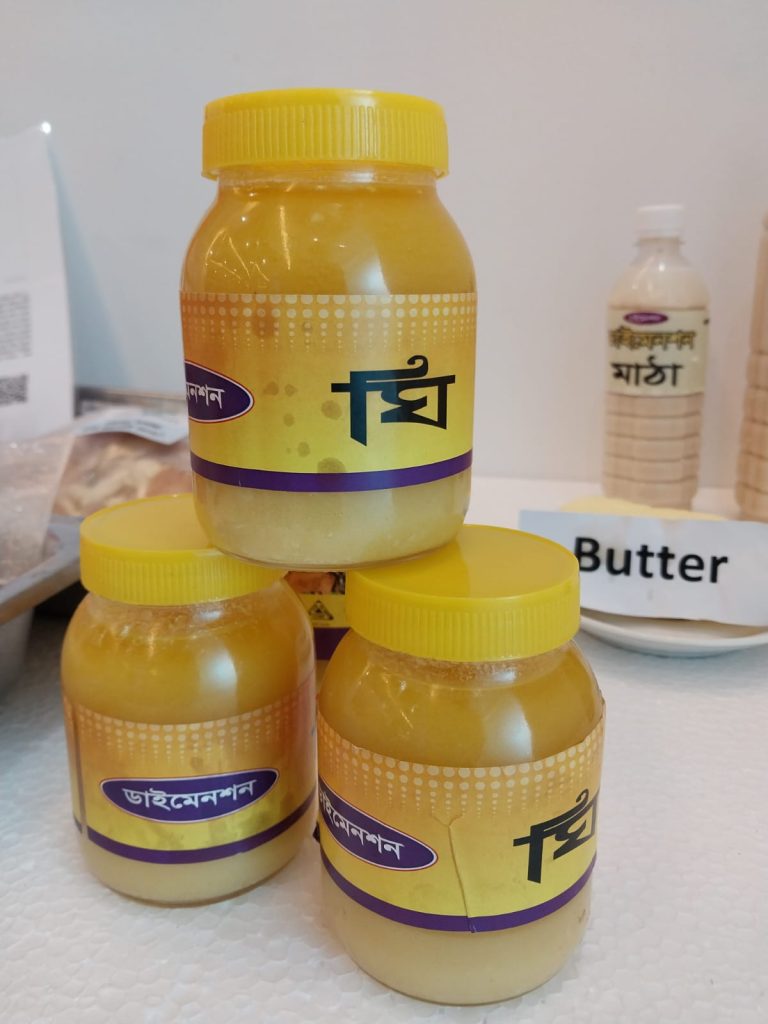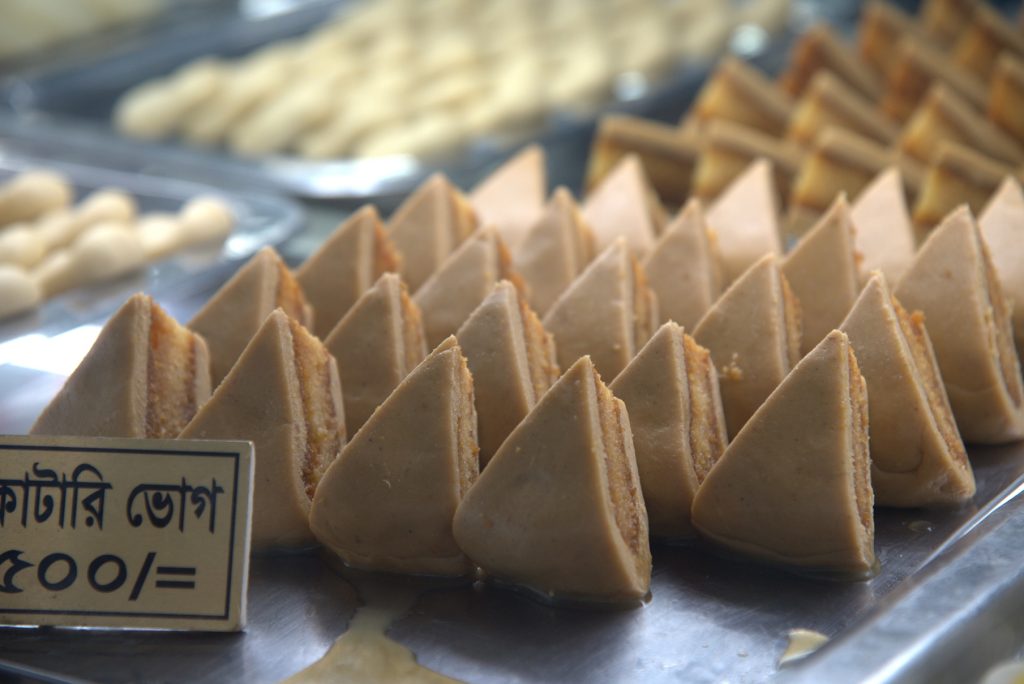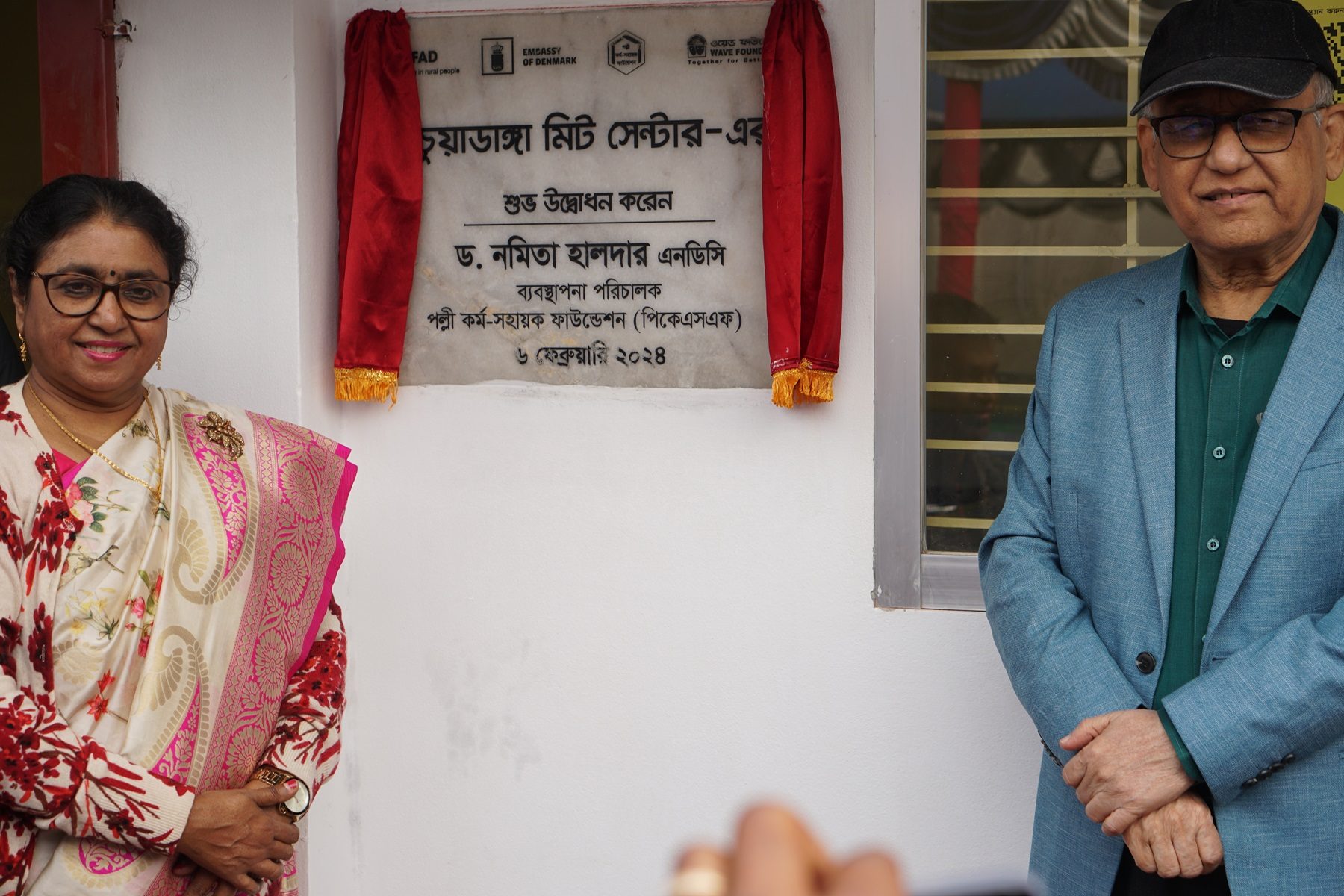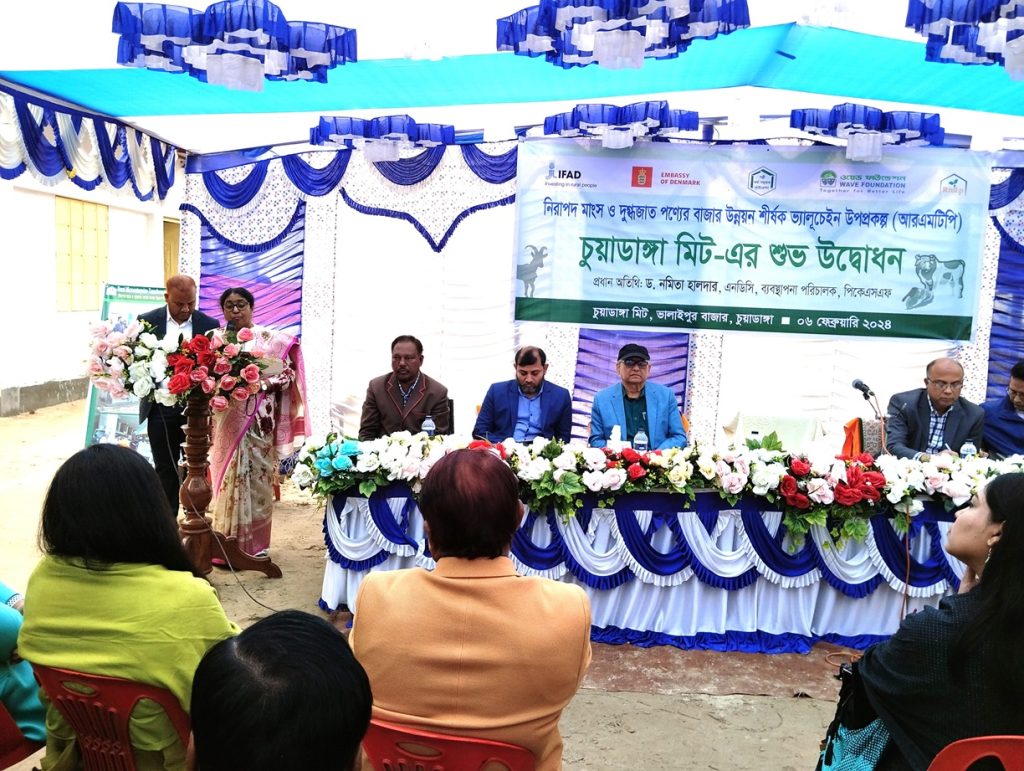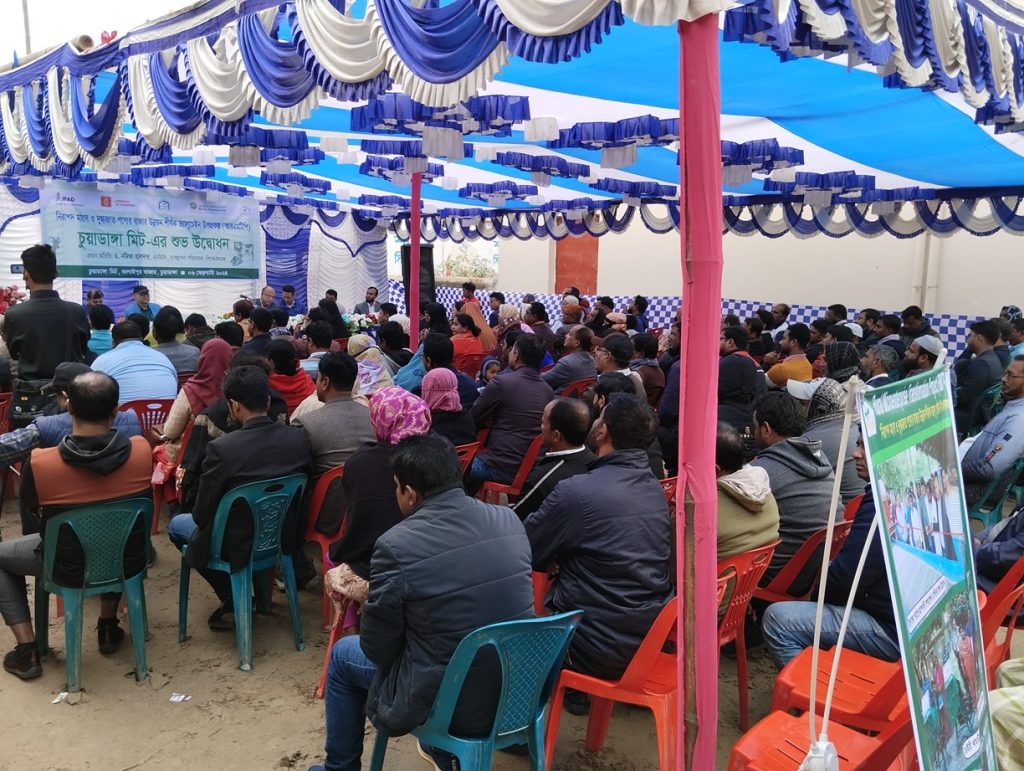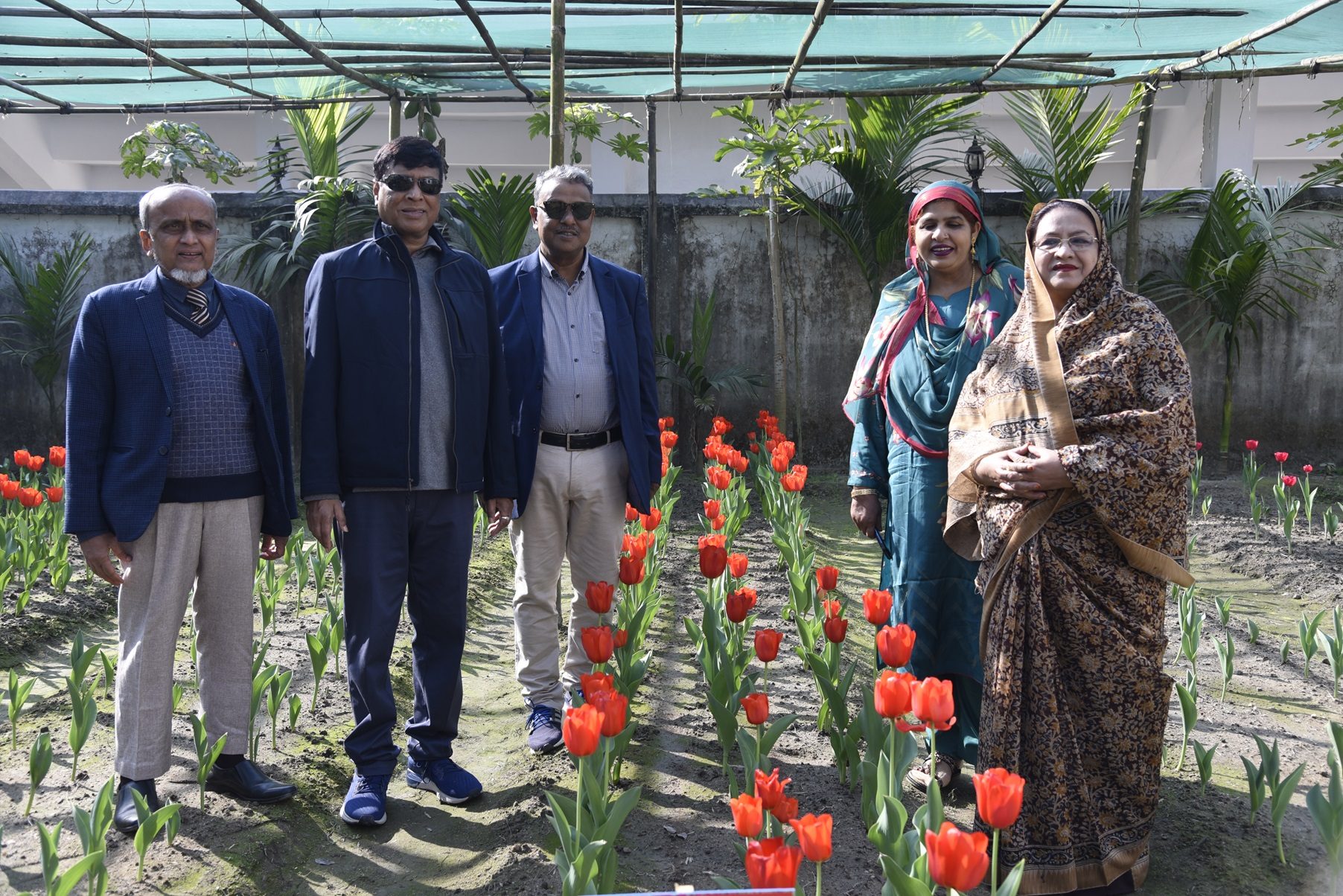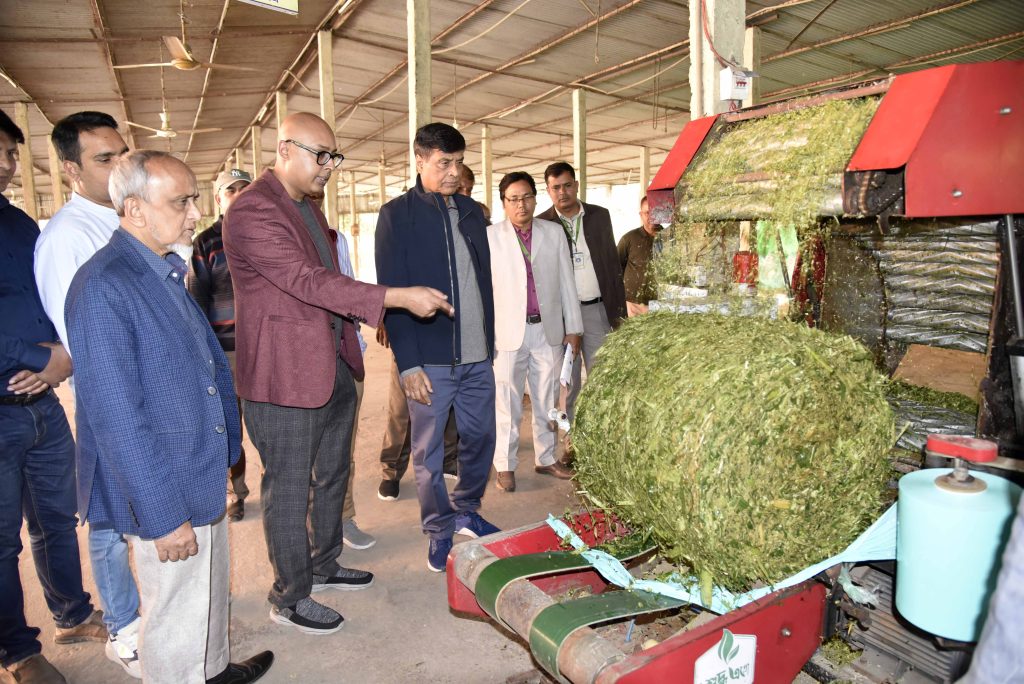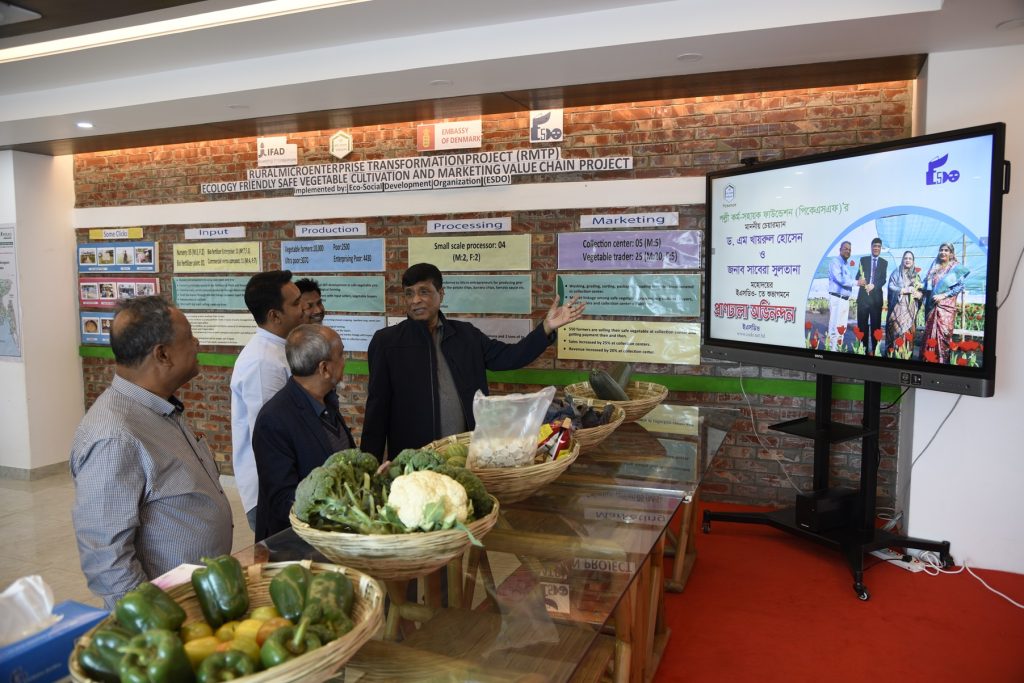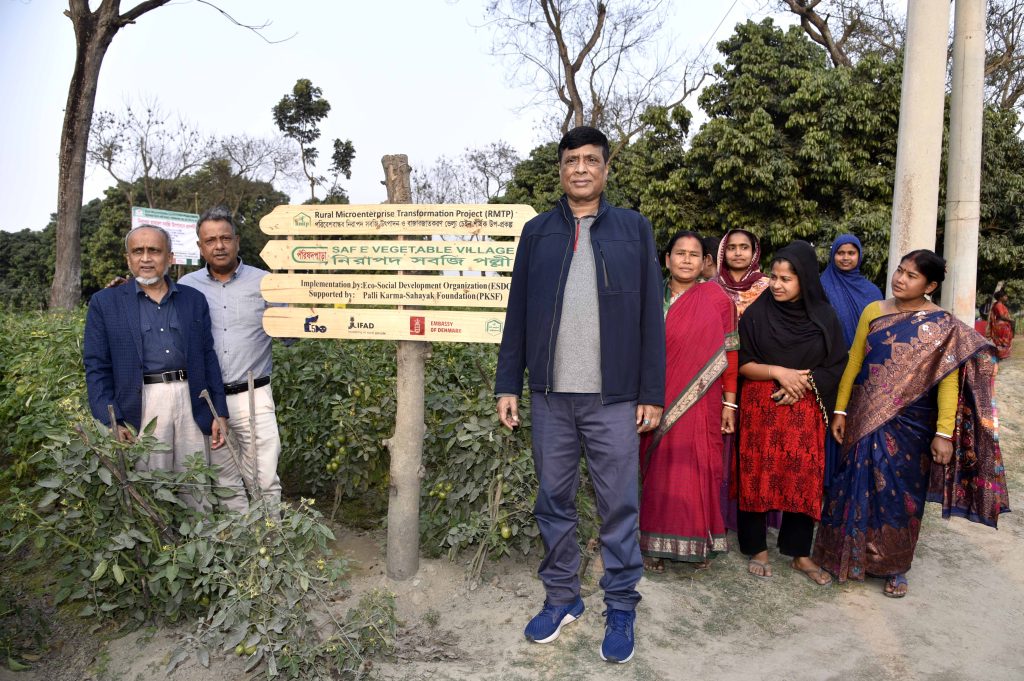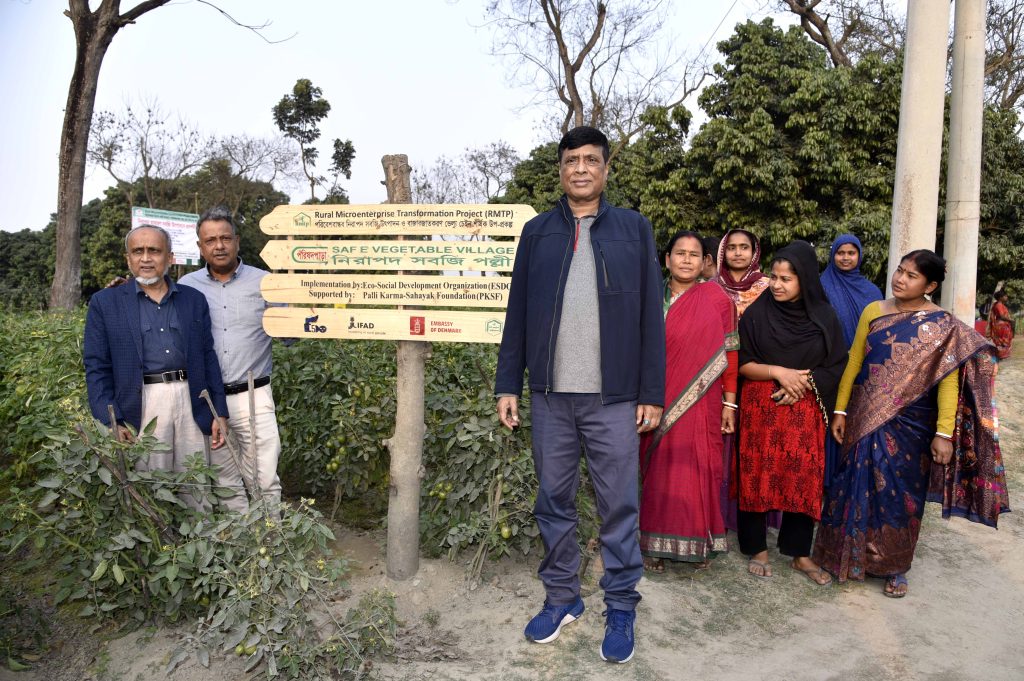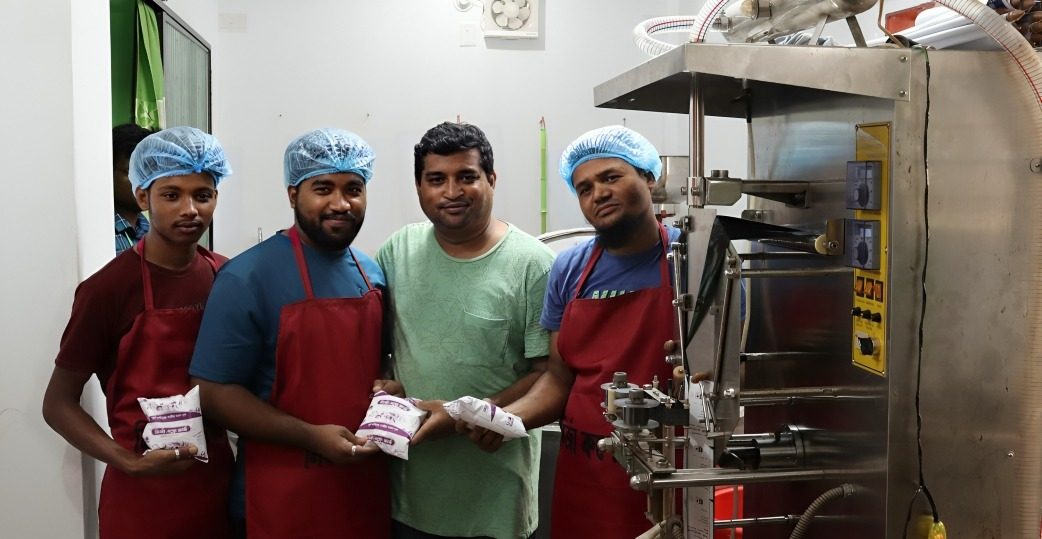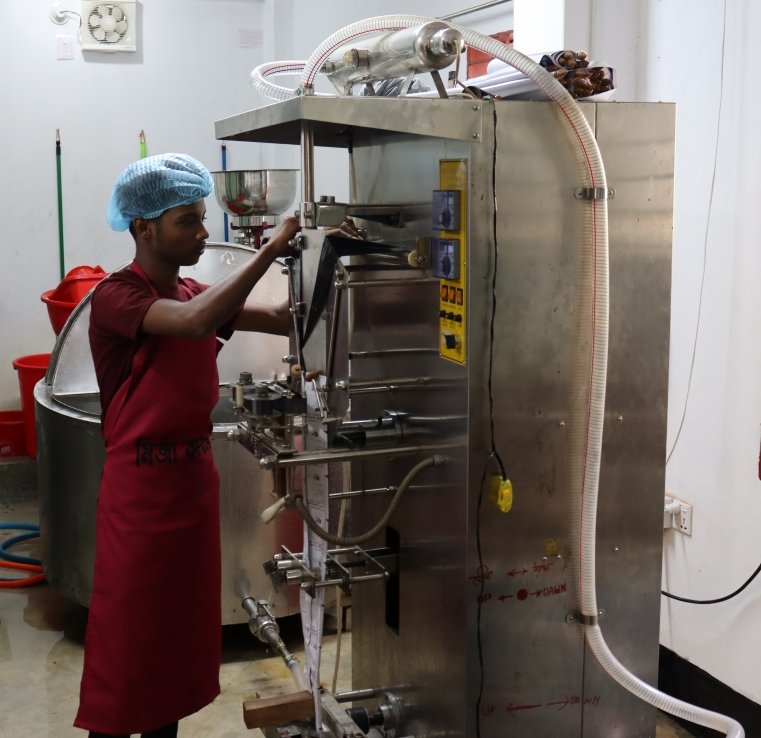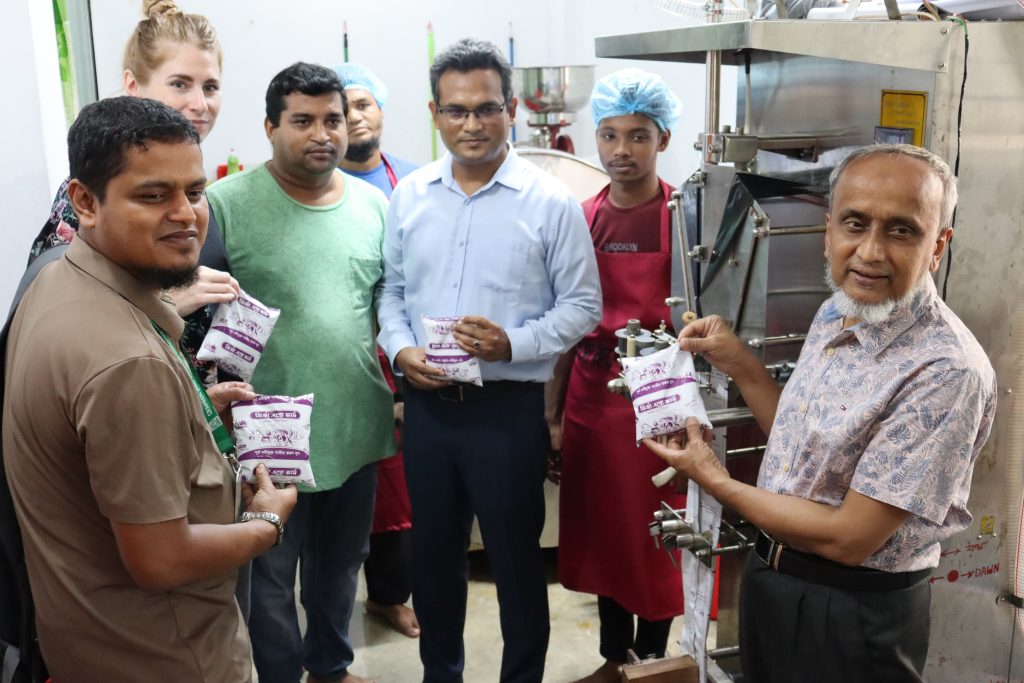Sirajganj’s Tk100cr dairy market thrives on milk production boom
Abdul Khaleque was perplexed when he received an order via WhatsApp from several people in Kolkata’s Jorasanko, India, requesting several tonnes of buttermilk products locally known as “ghol” and “matha.”
The Indian customers had tasted the buttermilk from his shop in Sirajganj’s Salop area during their visit to Bangladesh a year ago and were interested in starting a business selling these products in Kolkata. However, Khaleque could not fulfill their order as he struggles to meet the high demand for buttermilk in his own area.
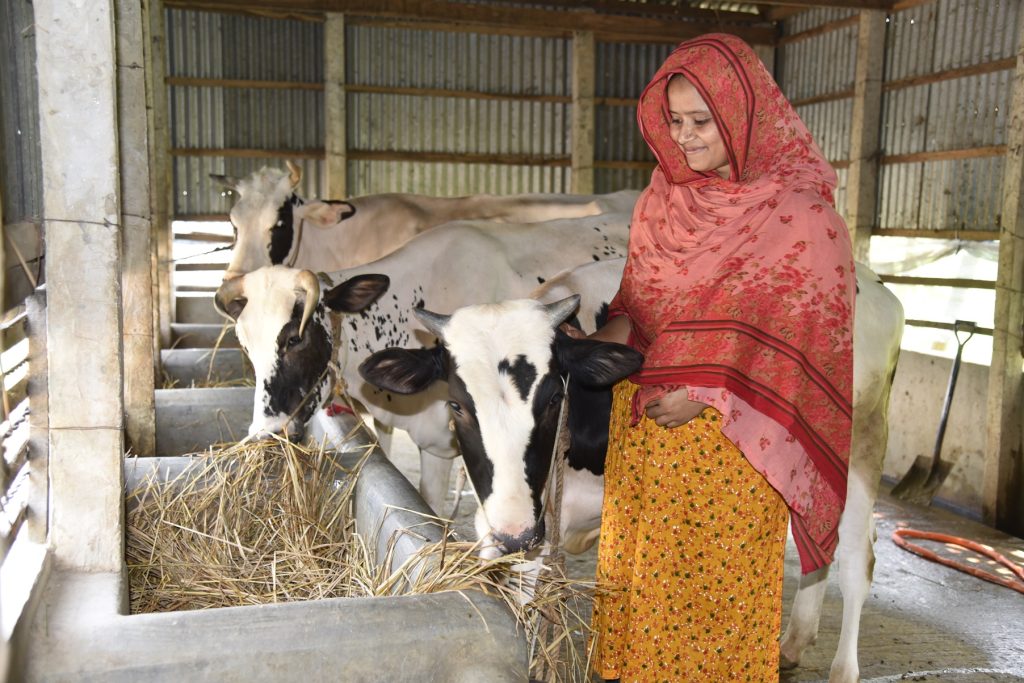
Khaleque told that he needs 100 maunds of milk every day to make ghol, matha, curd, and ghee for the domestic market. “At least Tk1 crore worth of products are sold in my shop every month,” he said.
Currently, 10 to 12 buttermilk shops have been established in Salop, with the market trading about Tk40 crore worth of these products annually.
As in Salop, the dairy products market in the district has been thriving due to a boom in cattle farming, supported by both government and private organisations. Officials report that dairy products worth over Tk100 crore are produced annually in the district, fostering the growth of hundreds of local entrepreneurs.
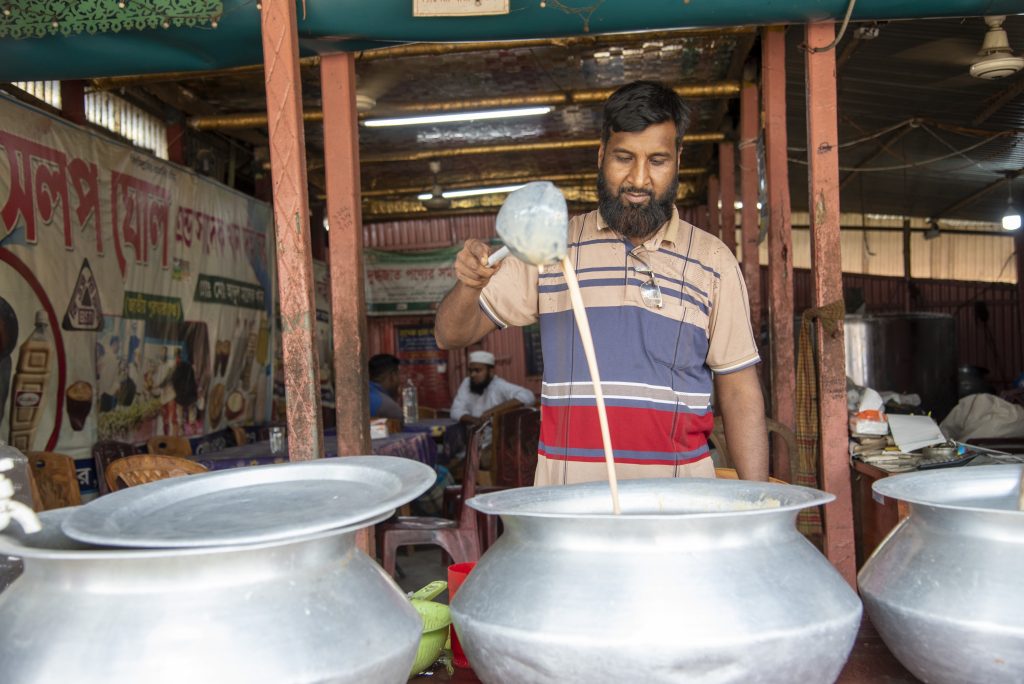
According to the District Livestock Department, there are about 33,000 small and large cattle farms in Sirajganj, housing more than 1.5 million cattle and producing around 7.16 lakh tonnes of milk per year. Companies like Baghabari Milk Vita, Aarong, and others collect about three lakh litres of milk daily from farmers, with daily sales amounting to over Tk1.65 crore.
Referring to Sirajganj’s history of milk production spanning over 100 years, Abdul Khaleque, owner of the ISO-certified shop, said that he and his brother Abdul Maleque have received training and loan assistance through various projects related to producing high-quality products.
“About 50 people are employed in our two shops. There is huge demand for our matha and ghol in Malda and Siliguri in India. However, we have not been able to export our products there due to the high local demand,” Khaleque said.
Women farmers power dairy boom
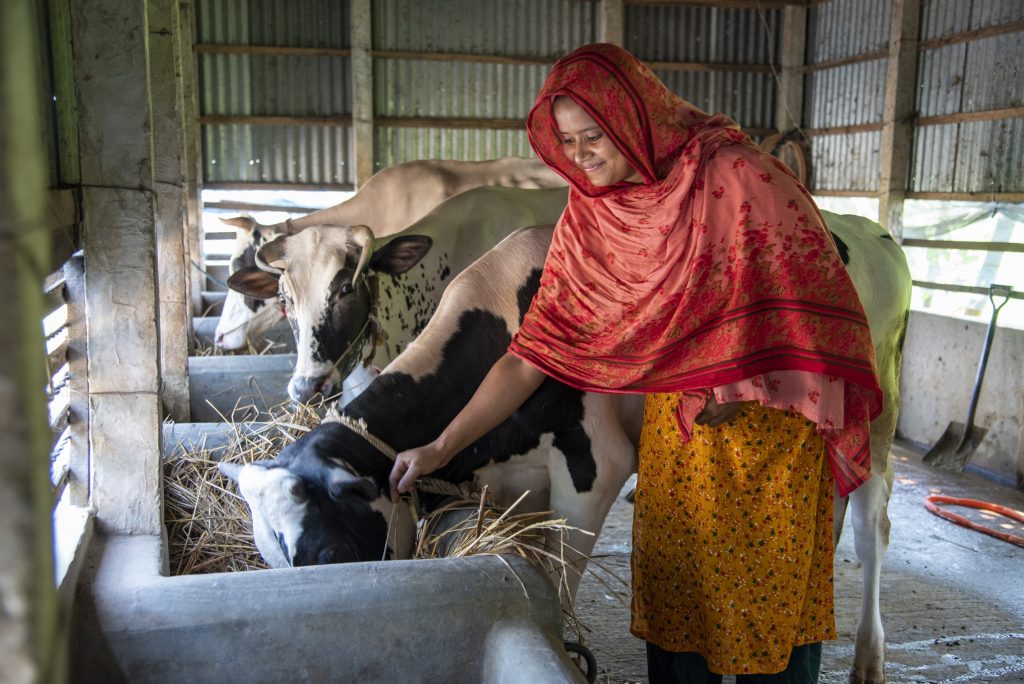
To develop the market for multi-purpose milk products, the Rural Microenterprise Transformation Project (RMTP) is being implemented in 12 districts across the country, funded by the International Agricultural Development Fund (IFAD), Palli Karma-Sahayak Foundation (PKSF), and the Danish International Development Agency (DANIDA).
The project provides technical, technological, and marketing support to 201,480 farmers and entrepreneurs, aiming to create a robust dairy products market and foster new entrepreneurs.
PKSF officials say safe milk and milk products are being produced in the district in an environmentally friendly manner. Entrepreneurs are increasing their income through processing and marketing, with rural milk collection centres set up to support their efforts.
Eco-friendly housing, pollution prevention measures, and modern machinery and technology for producing various dairy products have also been provided to the entrepreneurs.
Namita Halder, managing director of PKSF, stated that this sub-project has expanded the businesses of several hundred thousand people and increased their income.
Most of the cattle farmers involved in the project are women, who, after receiving training, started rearing cows at home.

One such farmer is Hashi Khatun from the Ullapara area of Sirajganj.
Hashi had six high-breed cows in her backyard farm, selling three recently and retaining three.
“I have seen cows affected by various diseases before, but I learned how to rear cows healthily after training in the RMTP project,” she said.
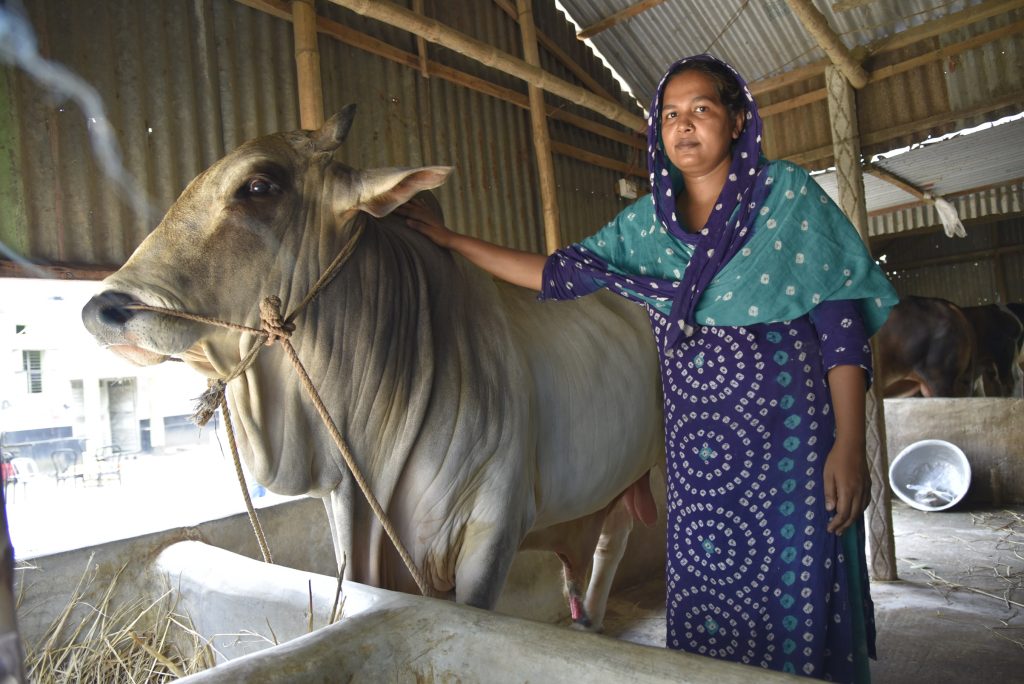
Taposhi Khatun, from Kamarkhand upazila, took a loan from the National Development Programme’s (NDP) Rural Microenterprise Transformation Project funded by the PKSF and IFAD in 2022 to start a cattle farm. Her farm now has two heifers and several cows.
“I underwent training on cow rearing from various institutions. I also cultivate grass on 16 acres of land. Silage is made from the grass and fed to the animals,” she said.
Taposhi Khatun, from Kamarkhand upazila, took a loan from the National Development Programme’s (NDP) Rural Microenterprise Transformation Project funded by the PKSF and IFAD in 2022 to start a cattle farm. Her farm now has two heifers and several cows.
“I underwent training on cow rearing from various institutions. I also cultivate grass on 16 acres of land. Silage is made from the grass and fed to the animals,” she said.
Another farmer, Meera Sanyal, said, “At the training, I learned how to raise cattle at low cost. We were also introduced to milk traders, and through them, we now sell milk on a monthly basis.”
Farmers say they have been trained in maintaining a healthy environment and managing waste. Many have set up biogas and vermicomposting plants and have purchased lawn mowers for mechanisation. They are also utilising telemedicine services via mobile apps.
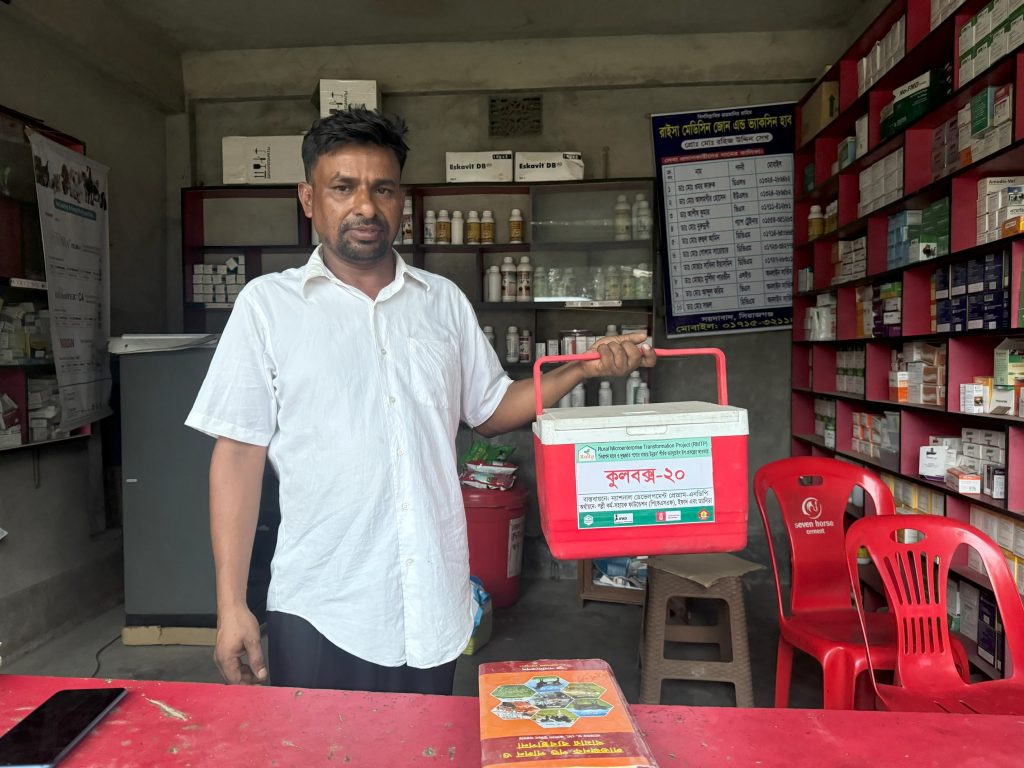
Md Alauddin Khan, executive director of NDP, which has been working to implement modern dairy practices, told TBS, “The country will benefit if the farmers in this area are guided on how to produce and market milk in a modern and safe manner.”
Sirajganj Livestock Officer Dr Omar Faruque said, “Sirajganj has long been known as a dairy industry region. Among its upazilas, Ullapara and Shahjadpur are particularly famous for milk production. There are 37 dairy factories in these two upazilas.”
https://www.tbsnews.net/economy/sirajganjs-tk100cr-dairy-market-thrives-milk-production-boom-884601
